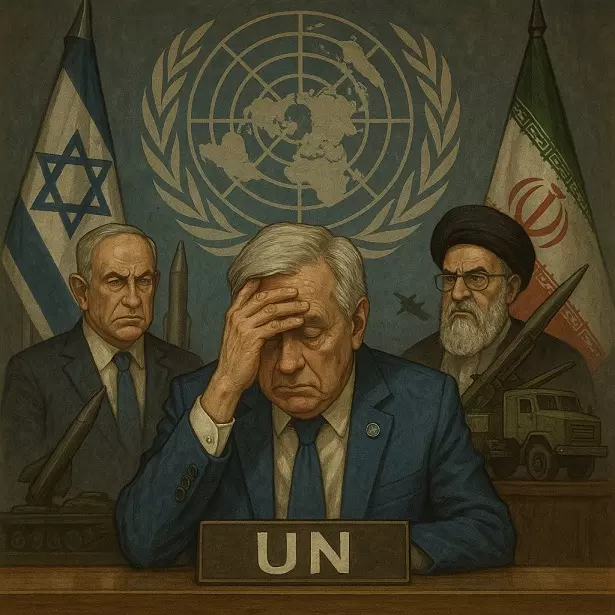- P.O. Box: 11482 Yaoundé, Cameroon; Headquarters: Efoulan, Yaoundé 3
- contact@caessinternational.org

Early this morning, in western Iran—in the cities of Arak and Khondab—the Israeli army called on residents to evacuate in anticipation of military operations. Khondab, in particular, is home to a sensitive nuclear facility suspected of housing a heavy water reactor.
For the past week, Israel and Iran have been engaged in a conflict that Israeli Prime Minister Benjamin Netanyahu has described as a “preventive war,” aimed at stopping the Islamic Republic from acquiring nuclear weapons. The concept of preventive war is not new: the United States invoked it in 2003 against Saddam Hussein’s Iraq, under the pretext of weapons of mass destruction—an allegation that ultimately proved unfounded. That intervention, moreover, took place without a UN mandate. In 2011, another preventive war was carried out in Libya by France, the United Kingdom, and the United States, this time under UN mandate. The goal was to prevent Muammar Gaddafi’s regime from violently suppressing protests. In this context, the UN Security Council is scheduled to hold an emergency meeting on June 20, 2025, to debate the Israeli-Iranian conflict. But what can we truly expect from today’s global governance?
Founded on June 26, 1945, in San Francisco, the United Nations initially brought together 51 member states, including the victors of World War II: the United States, the USSR, China, France, and the United Kingdom. Their ambition was to prevent another world war. Since then, the UN has expanded through decolonization and the end of the Soviet bloc, now encompassing 193 member states. The General Assembly is a forum where all states—from Afghanistan to Zimbabwe—debate on equal footing. In contrast, the Security Council, the central body responsible for maintaining international peace and security, consists of 15 members: 10 non-permanent members elected for two years, and 5 permanent ones—the United States, Russia, China, France, and the United Kingdom—each holding veto power. These are also the main nuclear powers. The Security Council can initiate mediation efforts, impose sanctions, or deploy peacekeeping forces, such as the Blue Helmets currently stationed in Lebanon to uphold the ceasefire between Israel and Iran-backed Hezbollah.
However, the UN’s effectiveness depends largely on the cooperation of its five permanent members, who currently appear divided on the Israeli-Iranian issue. Russia, a historical ally of Iran, seems to be distancing itself. China, also close to Tehran, has condemned Israel but has yet to take concrete action. France and the United Kingdom reaffirm their commitment to international law while recognizing Israel’s right to ensure its security. As for the United States, its position remains unclear. President Donald Trump, consistent with his policy of withdrawal from foreign entanglements, maintains an ambivalent stance toward Iran. His political majority remains divided, and his foreign policy continues to be marked by persistent unpredictability.